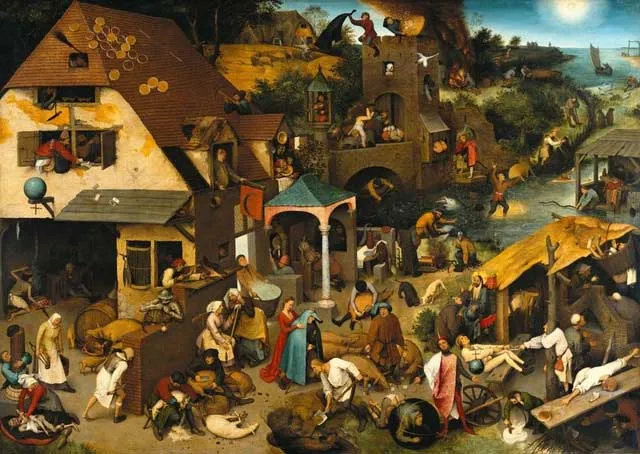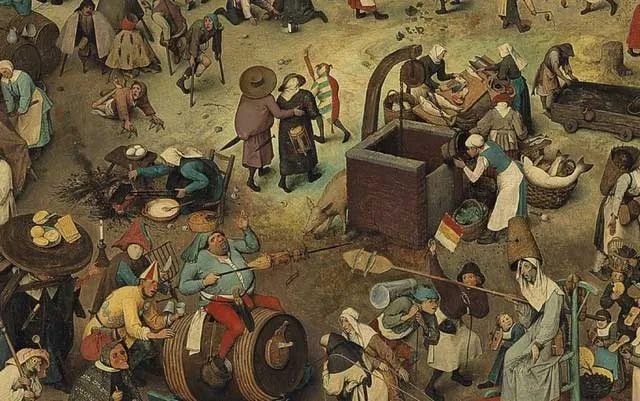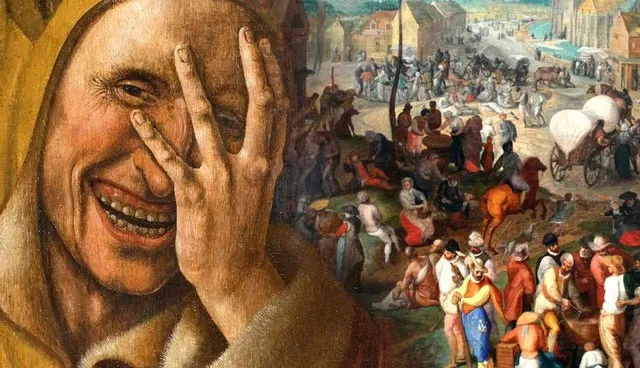Have you ever dreamt of stepping into a world of ancient castles, lavish feasts, and the noble life of the medieval upper class? If the answer is yes, join “Du lịch khắp thế gian” (Discovery Around the World) on a journey back in time to experience a day as a medieval Italian noble. Together, we will explore the formal rituals, refined pleasures, and weighty responsibilities of the aristocracy in the glorious Italian Renaissance society. Get ready to immerse yourself in opulent surroundings, savor exquisite cuisine, and uncover the secrets hidden behind the regal life of Italian nobles of yesteryear.
Waking Up in a Magnificent Castle
Dawn breaks over the rolling hills of Tuscany, and a new day begins not with the familiar church bells, but with the melodious sound of a lute echoing from the stone corridors. You, in the role of an Italian noble, awaken in a large bed with soft silk sheets and драп. Morning light filters through the arched windows, illuminating the spacious bedroom adorned with intricate fresco murals and magnificent embroidered tapestries.
Stepping out onto your private balcony, you gaze upon the vast estate stretching out before you. Lush vineyards, silvery olive groves, and ancient oak forests surround the ancestral castle, creating a breathtaking natural panorama. The fresh morning air carries the scent of lavender and damp earth, awakening your senses and preparing you for an exciting new day.

Noble Breakfast and Rituals
As the bell signaling трапеза time rings, you proceed to the grand dining hall, where the banquet table has been lavishly set. Breakfast for a medieval Italian noble is not merely about refueling but also an important social ritual. On the long table draped with pristine white silk, dishes are meticulously arranged, from crispy toasted bread and fragrant pecorino cheese to fresh fruit picked from the estate’s orchards.
Fine wine is poured from exquisite ceramic pitchers, blending with the rich flavors of prosciutto and olives. While enjoying breakfast, you engage in conversation with family and guests about local news, current political affairs, and plans for the day ahead. Strict dining etiquette is observed, from the proper way to hold cutlery and pour wine to the acceptable topics of discussion.

Participating in Noble Activities
After breakfast, a medieval Italian noble begins their workday, not in a stuffy office, but amidst expansive nature or in the stately studies of the castle. A typical morning might start with horseback riding around the estate, inspecting the crops, and overseeing the work of the tenant farmers. Hunting is also an integral part of noble life, not just for entertainment but also as a way to hone military skills and demonstrate authority.
Furthermore, managing estates and participating in political activities occupy a significant portion of the nobility’s time. They must resolve land disputes, collect taxes, maintain a private army, and participate in noble councils to make decisions about the fate of the land. The morning may also be devoted to reading, studying classics, or learning the arts, reflecting the erudition and enlightened spirit of the Renaissance nobility.
Lunch and Socializing
Lunch for an Italian noble typically takes place midday, a time for rest and socializing with friends, partners, or family members. The table setting is simpler than breakfast, but still refined, featuring light dishes such as fresh salads, vegetable soups, or pasta. Wine remains an essential beverage, carefully selected to complement each dish.
During lunch, conversations revolve around art, literature, philosophy, and current cultural events in the city. Italian Renaissance nobles were renowned as patrons of the arts; they were not only passionate about beauty but also actively supported artists, writers, and scientists. Lunch also provides an opportunity to strengthen social connections, discuss business, or simply enjoy relaxing moments with close friends.
Leisure and Arts
The afternoon is reserved for refined pastimes and leisure activities of the nobility. Activities such as chess, music, dance, or attending artistic performances are often favored. Many nobles also have a passion for collecting artworks, from paintings and sculptures to antiques and tapestries. Their castles are often lavishly decorated like miniature art museums, showcasing their refined taste and unparalleled wealth.
Additionally, learning and acquiring knowledge are highly valued. Nobles often spend time reading books, studying classical works, or participating in discussions on philosophy, politics, and science. They are aware of their leadership roles in society and constantly strive to become outstanding individuals, well-rounded in both intellect and character.

Preparing for Dinner and Evening Festivities
As dusk falls, the castle begins to light up, signaling the time to prepare for dinner – the most important event of the day for Italian nobles. Choosing attire for dinner is also an elaborate ritual. Noble ladies don magnificent silk and brocade gowns, sparkling with gemstone jewelry, while noblemen wear elegant velvet formal wear, embroidered with intricate patterns.
Before dinner commences, guests usually gather in the grand salon to enjoy aperitifs, converse, and admire each other in their finest attire. The salon is warmly decorated with flickering candlelight, fresh flowers, and melodious music, creating a formal and romantic atmosphere.
Lavish Dinner Party and Entertainment
Dinner for a medieval Italian noble is a true feast, lasting for hours with countless exquisite dishes and fine wines. The banquet table is arranged like a work of art, with intricately embroidered tablecloths, gleaming silverware, and vibrant bouquets of fresh flowers. Dishes are served in courses, from light appetizers to hearty main courses and finally, sweet desserts.
Throughout dinner, music and artistic performances take place continuously, from melodious classical pieces and graceful dances to romantic poetry recitations. The dinner party is not only an occasion to savor cuisine and art but also an opportunity to socialize, make connections, and strengthen social relationships. Jokes, compliments, and engaging conversations make the party atmosphere lively and memorable.

Ending a Day as a Noble
As the night deepens and the dinner party gradually winds down, the Italian noble returns to their private chambers, concluding a day of regal living and rich experiences. Looking back on the day, you sense the stark contrast between the lives of the nobility and commoners in medieval times. While ordinary people struggled with the hardships of daily life, nobles enjoyed privileges and luxuries that many could only dream of.
However, noble life also came with its own responsibilities and pressures. They had to maintain social status, manage estates, participate in politics, and protect their lands. Nevertheless, it is undeniable that the life of Italian nobles in the medieval period, especially during the Renaissance, was a symbol of wealth, power, and refined culture.
Experiencing Medieval Italy Today
If you wish to experience a part of medieval Italian noble life, there are many ways to fulfill this dream today.
- Visit ancient castles: Italy is home to countless magnificent castles from the medieval era. Visit castles like Castello Sforzesco in Milan, Castel Sant’Angelo in Rome, or Palazzo Pitti in Florence to feel the living spaces of nobles of the past.
- Attend medieval festivals: Many cities in Italy host festivals that recreate medieval life, with activities such as parades, jousting, medieval music performances, and cuisine.
- Savor medieval cuisine: Some restaurants in Italy serve dishes prepared according to medieval recipes, offering a unique culinary experience.
- Stay in castle hotels: Some ancient castles in Italy have been converted into luxury hotels, allowing you to experience noble life in an authentic setting.
Conclusion:
Experiencing a day as a medieval Italian noble is a journey of discovering the culture, history, and unique lifestyle of a special social class. Even as an imagined experience, it helps us better understand the glorious past of Italy and the cultural values they left for posterity. Let “Du lịch khắp thế gian” (Discovery Around the World) accompany you on your journey to explore the wonders of the world!